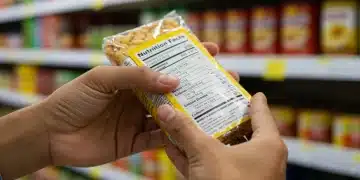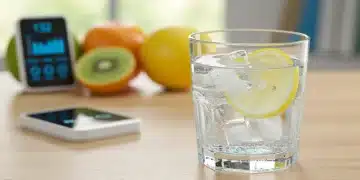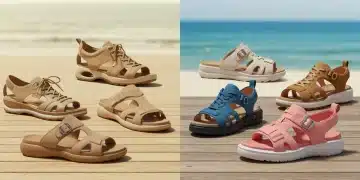Beyond the Bottle: 5 Plastic-Free Personal Care Brands to Watch in 2025
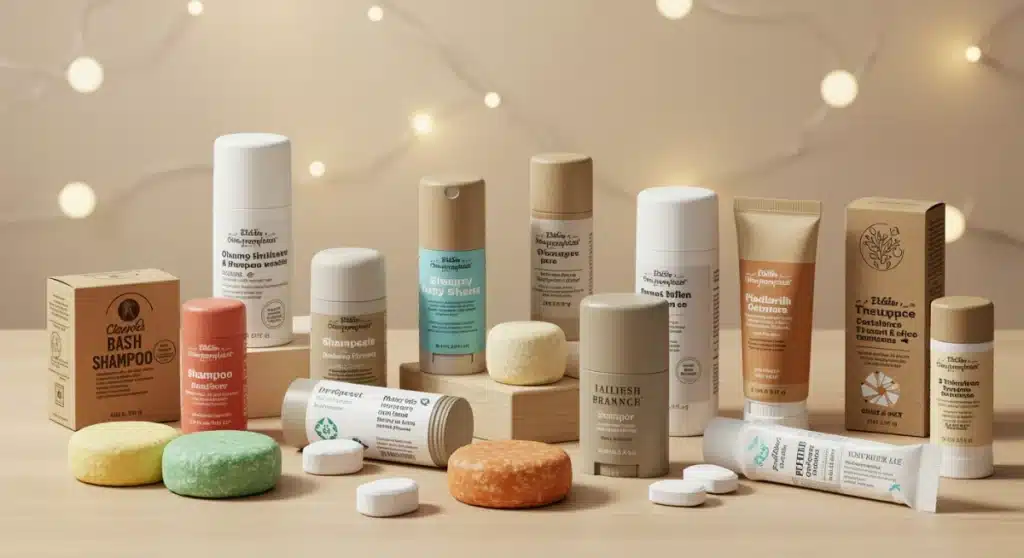
Beyond the Bottle: A Comparison of 5 Innovative Plastic-Free Personal Care Brands Gaining Traction in 2025 highlights emerging companies actively revolutionizing the personal care industry by offering sustainable, plastic-free alternatives that reduce environmental impact and meet consumer demand for eco-conscious products.
The global shift towards sustainability is profoundly impacting the personal care industry, with consumers increasingly demanding eco-friendly alternatives. This movement has propelled the rise of innovative companies, and here we examine Beyond the Bottle: A Comparison of 5 Innovative Plastic-Free Personal Care Brands Gaining Traction in 2025, reshaping how we approach daily routines.
The Urgent Need for Plastic-Free Innovations
The pervasive issue of plastic pollution has reached critical levels, prompting urgent calls for systemic change across all industries. Personal care, traditionally reliant on single-use plastic packaging, is now at the forefront of this transformation. As of recent reports, millions of tons of plastic waste enter our oceans annually, with personal care products contributing significantly to this alarming figure.
Consumers are becoming more aware of their environmental footprint, driving a powerful demand for sustainable solutions. This heightened consciousness is compelling brands to innovate, moving away from conventional plastic bottles and containers towards more eco-friendly alternatives. The market is currently experiencing a rapid evolution, with new technologies and materials emerging to support this plastic-free future.
Understanding the Environmental Impact
Traditional personal care packaging often involves non-recyclable plastics, leading to accumulation in landfills and natural ecosystems. The manufacturing process itself also contributes to carbon emissions and resource depletion. Addressing these issues requires a holistic approach, from product formulation to packaging design.
- Plastic waste accumulation in oceans and landfills.
- High energy consumption in plastic production.
- Limited recyclability of many personal care plastics.
- Microplastic contamination impacting ecosystems and human health.
Ethique: Pioneering Solid Formulations
Ethique, a New Zealand-based company, has established itself as a global leader in the plastic-free revolution since its inception. Founded in 2012, Ethique specializes in solid personal care bars, offering an extensive range from shampoos and conditioners to body washes and deodorants. Their commitment to sustainability extends beyond just packaging, utilizing ethically sourced ingredients and maintaining a cruelty-free ethos.
The brand’s success lies in its innovative formulations, which concentrate active ingredients into compact bar forms, eliminating the need for water and, consequently, plastic bottles. Ethique’s focus on efficacy and user experience has garnered a loyal following, proving that eco-friendly products can perform just as well, if not better, than their traditional counterparts. They project significant growth into 2025, driven by expanding international markets and a growing consumer base.
Product Diversity and Impact
Ethique offers over 40 products, each designed to replace multiple bottled items. This not only reduces plastic waste but also minimizes water usage during production and transportation. Their impact is quantifiable, with millions of plastic bottles diverted from landfills to date.
- Shampoo and conditioner bars for various hair types.
- Body wash and face cleansing bars.
- Deodorant and body lotion bars.
- Compostable packaging made from cardboard.
HiBAR: Redefining Hair Care Standards
HiBAR, launched in the United States, quickly gained prominence for its uniquely shaped solid shampoo and conditioner bars. Their ergonomic design is not merely aesthetic; it’s engineered for ease of use and maximum product longevity. HiBAR’s mission is clear: to offer salon-quality hair care without the plastic waste, appealing to consumers who prioritize both performance and environmental responsibility.
The brand emphasizes natural ingredients and sustainable practices throughout its supply chain. HiBAR’s growth is largely attributed to its strong online presence and partnerships with eco-conscious retailers. As of recent market analyses, HiBAR is on track to significantly expand its market share in the plastic-free hair care segment by 2025, leveraging its distinct product design and commitment to sustainability. Their recent collaboration with major beauty retailers signals a strong trajectory.
by Humankind: Holistic Sustainable Living
by Humankind takes a broader approach to sustainable personal care, offering a range of refillable and plastic-free products that encompass oral care, body care, and hair care. Their philosophy centers on reducing single-use plastics across multiple daily routines. The brand’s subscription model encourages long-term sustainable habits, providing customers with refills in compostable or recyclable packaging.
Their product line includes innovative items such as mouthwash tablets, deodorant in refillable containers, and shampoo and conditioner bars. by Humankind’s commitment to transparency about ingredients and environmental impact resonates strongly with their target audience. Industry experts predict a continued upward trend for by Humankind as more consumers seek comprehensive sustainable solutions for their homes.
Innovative Refill Systems
The brand’s refill system is a cornerstone of its plastic-free strategy. Customers purchase a durable, reusable container once and then replenish it with product refills, significantly cutting down on packaging waste. This model not only benefits the environment but also offers convenience to consumers.
- Mouthwash in tablet form for minimal waste.
- Deodorant in sleek, refillable aluminum cases.
- Shampoo and conditioner bars with plastic-free packaging.
- Subscription options for recurring sustainable deliveries.
Plaine Products: Refillable Aluminum for the Win
Plaine Products stands out with its commitment to a circular economy model, offering personal care products in reusable aluminum bottles. Customers return their empty bottles for cleaning and refilling, effectively eliminating single-use plastic. This closed-loop system differentiates Plaine Products in a competitive market, appealing to those who seek zero-waste solutions.
Their product range includes shampoo, conditioner, body wash, and hand wash, all formulated with natural, vegan, and cruelty-free ingredients. The company’s dedication to quality and environmental stewardship has earned it a strong reputation. Analysts project Plaine Products will see substantial growth by 2025, as the demand for truly circular product systems increases, especially within the eco-conscious consumer segment.
Tangie Waste Not: Concentrated Cleaning Power
Tangie Waste Not is making waves with its unique approach to reducing waste in personal care and household cleaning. The brand specializes in highly concentrated, water-activated products, such as shampoo bars, laundry soaps, and dish soaps, that minimize packaging and transportation footprint. Their philosophy is to offer effective cleaning power without the unnecessary water weight or plastic containers.
Tangie Waste Not’s product line is designed for longevity and efficiency, allowing consumers to use less product for the same results. This not only saves money but also significantly reduces waste. The brand is experiencing a surge in popularity, particularly among zero-waste enthusiasts and those looking to simplify their routines. Their focus on concentrated formulas positions them for continued expansion in the sustainable market through 2025.
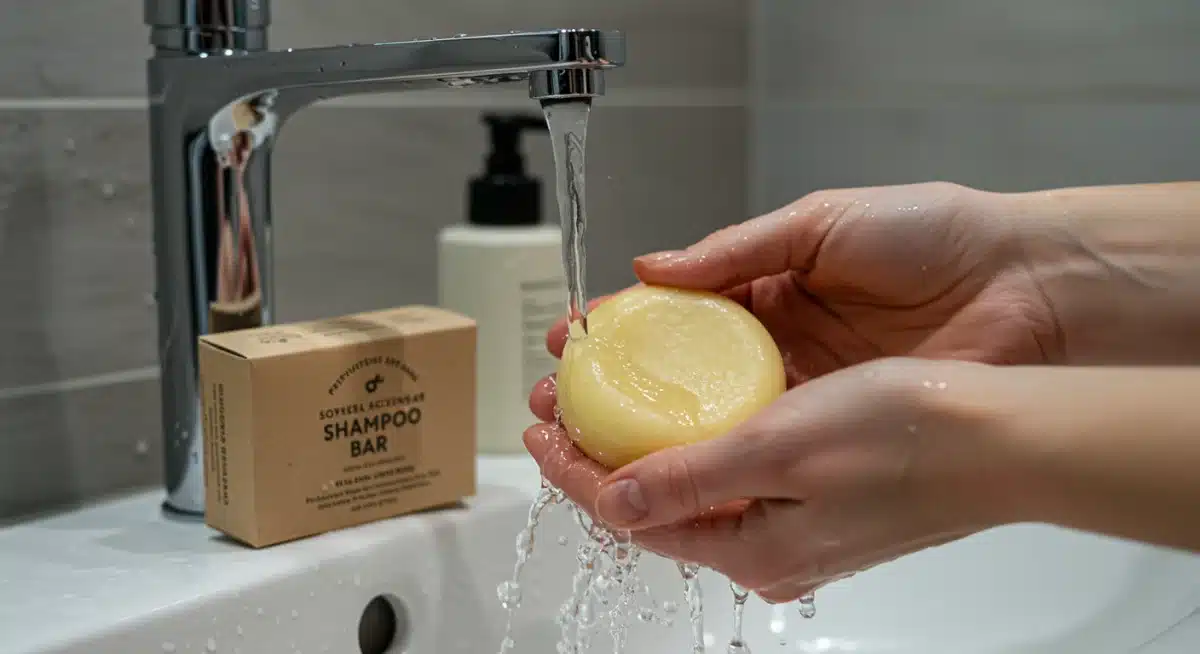
The Future of Plastic-Free Personal Care: Trends and Challenges
The trajectory for plastic-free personal care brands indicates continued innovation and market expansion. Several key trends are shaping this future, including advancements in biodegradable and compostable materials, increased investment in refill infrastructure, and a growing consumer preference for minimalist and multi-functional products. However, challenges remain, particularly in scaling production and ensuring widespread accessibility.
One significant trend is the development of waterless formulations, which not only eliminate plastic packaging but also reduce the carbon footprint associated with transporting heavy, water-filled products. Additionally, brands are exploring novel packaging materials, such as seaweed-based films and plant-derived bioplastics, offering truly sustainable alternatives. The coming years will likely see major breakthroughs in material science and packaging design.
Overcoming Market Hurdles
Despite the positive momentum, plastic-free brands face hurdles. Educating consumers about the proper use and storage of solid or refillable products is crucial. Furthermore, competing with the established convenience and lower price points of traditional plastic-packaged goods requires strategic marketing and continued product innovation.
- Scaling production to meet increasing demand.
- Developing cost-effective and truly compostable packaging.
- Educating consumers on new product formats and usage.
- Building robust refill and return infrastructures.
| Key Brand | Innovation Focus |
|---|---|
| Ethique | Solid bar formulations for hair, body, and face care. |
| HiBAR | Ergonomic solid shampoo and conditioner bars for hair care. |
| by Humankind | Refillable systems for oral, body, and hair care. |
| Plaine Products | Closed-loop system with refillable aluminum bottles. |
Frequently Asked Questions About Plastic-Free Personal Care
Switching to plastic-free personal care significantly reduces plastic waste, mitigating environmental pollution in oceans and landfills. Many brands also use natural, ethically sourced ingredients, leading to healthier product choices. It contributes to a more sustainable lifestyle and supports businesses committed to eco-friendly practices.
Yes, many plastic-free personal care products are highly effective, often formulated with concentrated ingredients. Brands like Ethique and HiBAR offer salon-quality results in solid bar form. The efficacy often matches or exceeds traditional products, while also being better for the environment.
Common plastic-free packaging alternatives include compostable cardboard, aluminum (often refillable), glass, and plant-based bioplastics. Some brands also use unique refill systems where customers return empty containers for cleaning and reuse, creating a circular economy model.
Refillable systems typically involve purchasing a durable, reusable container initially. When the product is used up, customers can buy concentrated refills in minimal packaging (e.g., compostable pouches, aluminum bottles) to replenish the original container. Some brands offer mail-back programs for bottle reuse.
Concentrated formulas are key to plastic-free personal care as they reduce the need for water, making products smaller and lighter. This minimizes packaging requirements and transportation emissions. Brands like Tangie Waste Not exemplify this by offering water-activated products that deliver powerful cleaning with less waste.
Looking Ahead
The rapid advancements in plastic-free personal care signal a critical turning point for the industry. As consumer awareness grows and technological innovations mature, these brands are poised not just for growth but for fundamentally altering market expectations. We can anticipate further integration of circular economy principles, expanded refill infrastructures, and more accessible sustainable options entering mainstream retail. The next few years will be crucial in solidifying the plastic-free movement, demonstrating its long-term viability and profound environmental impact.


